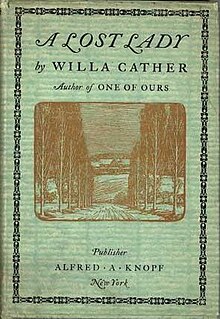1學習工作經歷編輯
1944.11.6出生於江蘇武進。
1950.9-1956.7在江蘇常熟、無錫和揚州等地讀小學。
1956.9-1962.7南京市浦鎮中學
1962.9-1967.7南京大學外文係法語專業
1967.7-1968.7留校搞文化大革命一年
1968.9-1969.12江蘇淮安林集6436部隊農場鍛煉
1969.12-1970.3安徽廬江縣
白湖農場鍛煉
1970.5-1972.4瀋陽松陵機械廠鉚工(今瀋陽飛機製造公司)
1972.5-1978.8瀋陽松陵機械廠情報室翻譯
1978.9-1981.7中國社會科學研究生院外國文學係法國文學專業
1981.9-1985.11中國社會科學院外國文學研究所理論室
1985.12-1987.9巴黎高等社會科學研究院進修
1987.9-2002.7外國文學研究所研究員
2002.8—湘潭大學文學與新聞學院教授
2科研成果編輯
專著:
1。《法國文學流派的變遷》(北京大學出版社,1995)
2。《法朗士----人道主義鬥士》(長春出版社,1995)
3。《盧梭》(華夏出版社,2002)
4。《薩特傳》(新世界出版社,2003)
文集:
1。《遠眺巴黎》(敦煌文藝出版社,1994)
2。《塞納河畔》(中央編譯出版社,1996)
3。《世紀末的巴黎文化》(社會科學文獻出版社,1998)
4。《法國文學散論》(東方出版社,2002)
譯著:
文藝理論:
1。《論無邊的現實主義》(上海文藝出版社,1986年初版,1998年天津百花文藝出版社重版。)
2。《電影作為語言》(合譯,中國社會科學出版社,1988)
3。《論小說的社會學》(中國社會科學出版社,1988)
4。《社會學批評概論》(廣西師範大學出版社,1993)
社會科學:
1。《左拉文學書簡》(安徽文藝出版社,1995)
2。《讓-雅克·盧梭,明信片畫傳:他的生平與著作》(三聯書店,1996)
3。《小愛大德》(中央編譯出版社,1997)
4。《最動人的世界史》(太白文藝出版社,1998)
5。《薩特,波伏瓦和我》(中國三峽出版社,1998)
6。《話多的女人》(作家出版社,1999)
7。《被歷史控制的文學》(湖南美術出版社,1999)
8。《古埃及探秘——尼羅河畔的金字塔世界》(台灣時報出版公司,1994,上海書店出版社,1998,2000重印)
9。《絲綢之路——東方和西方的交流傳奇》(台灣時報出版公司,1994,上海書店出版,1998,2000重印)
10。《中國艷情——中國古代的性與社會》(荷蘭高羅佩著,台灣風雲時代出版有限股份公司,1994)
11。《吸血鬼——暗夜裡尋找生命》(台灣時報出版公司,1995,上海書店出
版社,1998,2000重印)
12。《十字軍東征——以耶路撒冷之名》(台灣時報出版公司,1996,上海書店出版社,1998,2000重印)
13。《亞歷山大大帝——在版圖的最前線》(台灣時報出版公司,1996,上海書店出版社,1998,2000重印)
14。《香料》,(香港三聯書店出版社,2002)
15。《埃及豔后》(上海譯文出版社,2004)
小說:
1。《苔依絲》(漓江出版社(1992,多次再版)
2。《左拉短篇小說選》(湖南文藝出版社,1993,合譯)
3。《羊脂球》(漓江出版社,1993,已重印8次以上)
4。《南方郵航》載《夜航》(接力出版社,1996)
5。《環遊黑海歷險記》(青海人民出版社,1998)
6。《非常關係》(海天出版社,2000 )
7。《終極秘密》(海天出版社,2002)
8。《幸福得如同上帝在法國》(人民文學出版社,2003)
主編:
1。《世界短篇小說名著鑑賞辭典》(合編,燕山出版社,1990)
2。《世界長篇名著精華》(合編,漓江出版社,1992)
3。《馬丁·杜加爾研究》(中國人民大學出版社,1992)
4。《諾貝爾文學獎辭典》(敦煌文藝出版社,1993)
5。《中外愛國詩文名言》(社會科學文獻出版社,1995)
6。《世界著名短篇小說分類文庫》(中國和平出版社,1996)
7。《法朗士精選集》(山東文藝出版社,1997)
8。《大仲馬精選集》(同上,1999)
9。《法國經典戲劇全集,法國卷》(浙江文藝出版社,1999)
10。《法國童話》(海豚出版社,外文出版社,2000)
11。《人類文明畫卷叢書》(26種,重慶出版社,1999)
以上共計47項
已完成和即將出版的成果:
1。“九·五”國家重點項目:《20世紀外國文學史》(5卷)中的《法國文學》部分。(譯林出版社)
2。中國社會科學院重點項目:《法國小說發展史》(浙江大學出版社)
3。文集:《法國文學備忘錄》(人民文學出版社)
4。譯著:《20世紀迷茫的孩子們》(河南人民出版社)
3社會兼職編輯
現為湘潭大學文學與新聞學院特聘教授、比較文學與世界文學研究所所長。中國社會科學院外文所研究員、博士生導師,中國作協會員,法國文學研究會會長。

